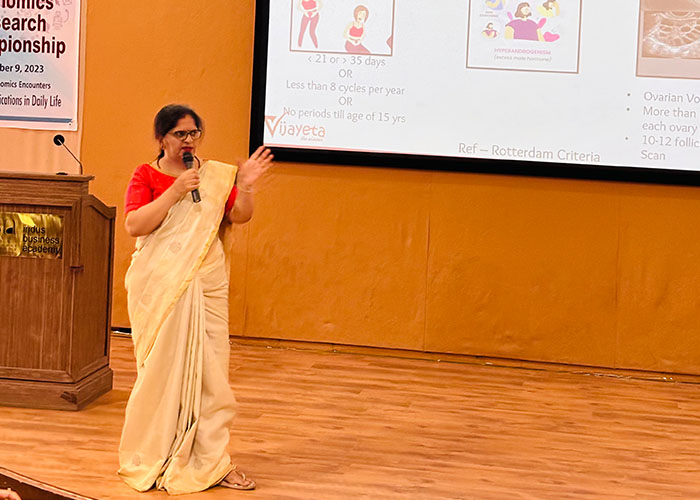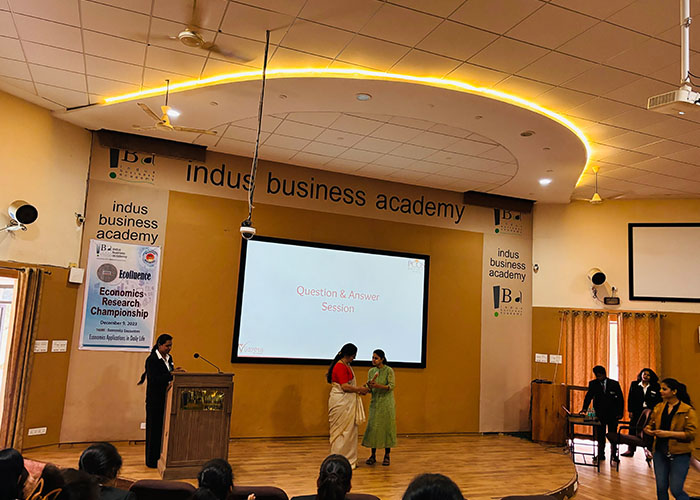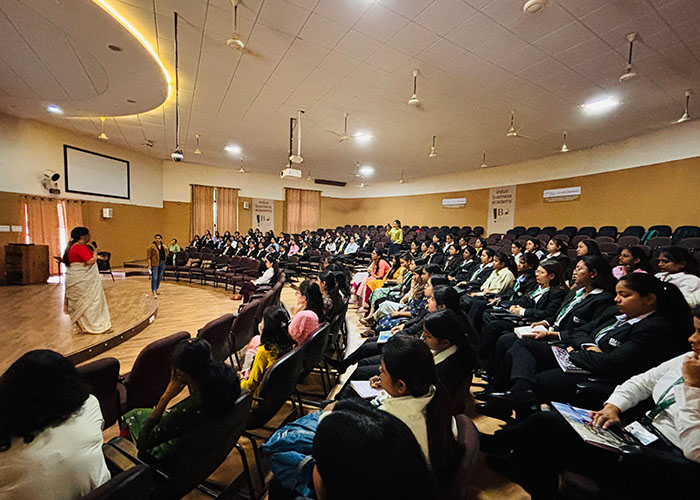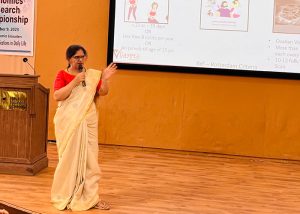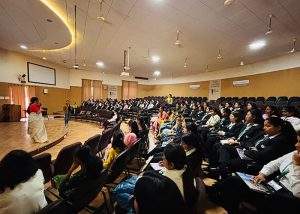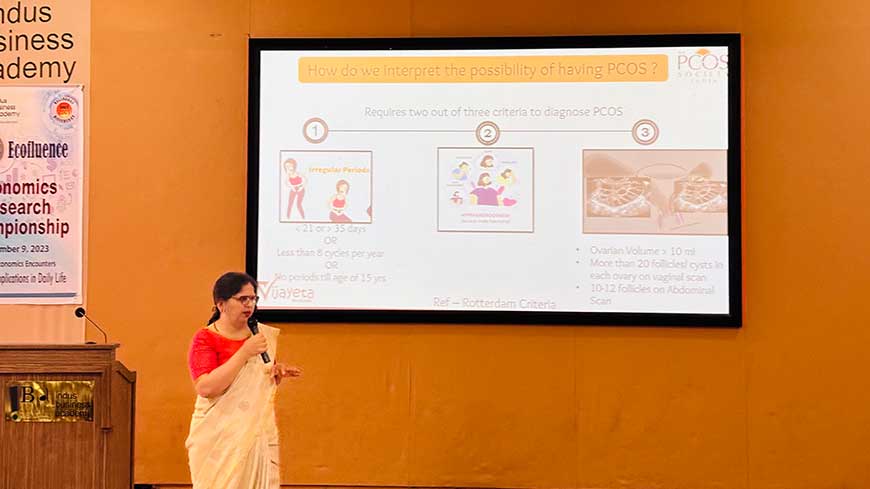
PCOS
Date: 15th December 2023
Dr. Chandrika Anand, MD, DNB, serves as the Director of the PCOS Center and is the Chief Consultant at Fortis Hospitals in Nagarbhavi, Bangalore. Additionally, she holds the position of South Zone Coordinator for the Endocrine Committee FOGSI (2022-23) and is a Managing Committee Member of the PCOS Society India. The lecture commences by questioning the relevance of understanding PCOS in our lives. PCOS is an enduring diagnosis which can trouble your life with 20% or 1 in every 5 women being diagnosed with it. An interesting fact is that earlier this issue was non-existent due to the strenuous work people engaged in during those times, PCOS manifests through various symptoms such as an irregular menstrual cycle, cessation of egg formation, growth of unwanted facial hair, severe pimples, and hair loss. Approximately 70% of women suffering from PCOS are obese, while 20% fall under the thin category. Women grappling with PCOS encounter challenges like difficulty in conceiving, susceptibility to diabetes, increased risk of abortions, high blood pressure, and heart-related problems. If left unaddressed, this problem can emerge during adolescence and persist until the age of 51. The causes of PCOS can be attributed to genetic factors, with 20% of patients affected by genetics, while others are influenced by an unhealthy lifestyle. PCOS, however difficult to treat, can always be controlled following a controlled lifestyle which includes: an adequate amount of sleep (6-7 hrs), regular exercise (30-40min), and being active throughout the day. While discussing PCOS, it is imperative to touch upon the topic of depression as 80% of PCOS patients may experience it. A few signs of depression include low self-esteem, fluctuations in appetite, difficulty concentrating, and negative thoughts.

